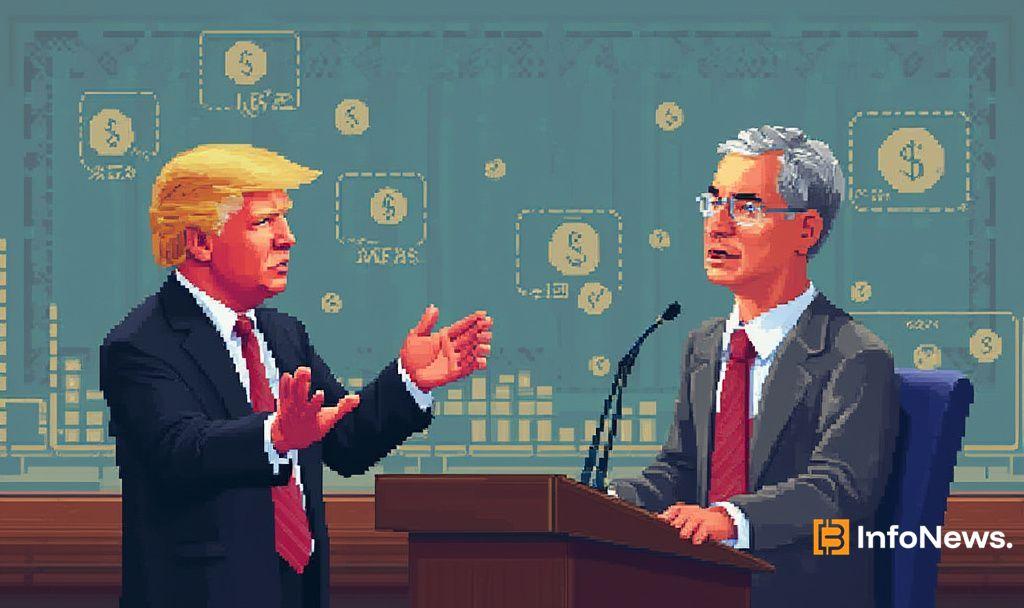Trump Urges Fed to Cut Interest Rates Immediately
- Trump urges immediate interest rate cuts by the Federal Reserve.
- Potential shift in U.S. monetary policy.
- Strong reactions in financial sectors and political arenas.

In a recent call to action, former President Donald Trump has publicly urged Federal Reserve Chairman Jerome Powell to implement an immediate reduction in interest rates.
The demand highlights tensions between political influences and U.S. monetary policy, reflecting broader economic and financial implications.
Trump Pushes for Immediate Federal Reserve Rate Cut
Former President Donald Trump has intensified calls for the Federal Reserve to reduce interest rates. Jerome Powell, the Fed’s Chairman, faces mounting pressure to adjust monetary policy. The appeal by Trump is seen as a direct challenge to the Fed’s independence.
Economic and political spheres have reacted strongly to Trump’s statements. This event marks another episode where political figures seek to influence central banking decisions, intensifying debates around monetary policy.
“This would be a PERFECT time for Fed Chairman Jerome Powell to cut Interest Rates. He is always ‘late,’ but he could now change his image, and quickly.” — Donald Trump, Former U.S. President
Financial Market Reacts to Trump’s Interest Rate Appeal
Trump’s remarks have prompted discussions across financial sectors, sparking volatility in the markets. Analysts note that such political interventions can lead to potential market fluctuations, impacting investor confidence and economic stability.
The call for rate cuts has considerable political reverberations, suggesting potential shifts in policy discussions. Critics argue that such influence could undermine the central bank’s autonomy, while supporters argue it reflects economic priorities.
Historical Precedence and Analysts’ Perspective
Political pressure on the Federal Reserve isn’t unprecedented. Past administrations have similarly exerted influence, with varying degrees of success impacting policy outcomes. These historical instances provide a backdrop to current discussions.
Market analysts suggest that based on historical trends, such pressures could lead to short-term economic adjustments. Experts highlight the need for careful policy considerations to mitigate potential economic disruptions.




